Feeding your baby is an exciting milestone, but it's important to be prepared and have the right information when it comes to introducing allergenic foods. Allergens are substances that can trigger an allergic reaction, and today we’ll explore what types of food-related allergies exist.
While food allergies are not very common in India, being aware and knowledgeable about allergens can help ensure a positive and enjoyable feeding experience for both you and your baby. Remember this guide is to equip you with knowledge and awareness, and not stress you out.
What Do We Mean By “Allergen”?
An allergen is a specific food (or substance) that can cause an allergic reaction in some people. It's like a trigger that can make certain individuals have an immune response and feel unwell when they eat or come into contact with that particular food.

Each person's body is unique, and while most people can eat a wide variety of foods without any problems, some individuals have allergies to specific foods. When they consume or come in contact with any allergenic food, their immune system reacts in a way that can cause symptoms such as rashes, hives, difficulty breathing, or gastric discomfort.
Allergies vs. Intolerance
It's important to understand the difference between allergies and intolerances.
An allergy is an immune response of the body towards a specific food, where the body considers the food a foreign substance and produces antibodies against it.
On the other hand, intolerance is not dangerous but it evokes gastric symptoms related to a person’s inability to digest that specific food (examples: lactose or gluten intolerance).
Allergies are more severe and potentially dangerous than intolerances.
Why Early Introduction of Allergenic Food Is Now Recommended
Research suggests that introducing allergenic foods early in a baby's diet can actually help prevent the development of allergies later in life. According to the International Pediatric Guidelines, as soon as you start introducing solids (around 6 months), it's a good time to introduce allergenic foods (which may trigger an allergic reaction) to your baby. By gradually exposing your baby to allergenic foods, you can help their immune system become more tolerant and reduce the risk of allergies.

| DID YOU KNOW: Earlier guidelines suggested giving children allergenic foods at 2 or 3 years. But recent research says that delaying introduction of allergenic foods may increase the child’s risk of developing allergies. |
Studies have found that early introduction of allergenic foods at around 6 months of age can be beneficial in reducing the prevalence of allergies in certain populations.

| DID YOU KNOW: Food allergies do not get passed from the baby to the mother through breast milk, so breastfeeding can continue even if the baby is allergic to a particular food. |
The Top 8 Allergenic Foods

According to the American Academy of Pediatrics (AAP), the following foods are considered as the top allergenic foods:
- Eggs
- Peanuts
- Dairy
- Wheat
- Fish
- Shellfish (shrimp, lobster, crab)
- Nuts (almonds, walnuts, cashews)
- Soy

In some countries, sesame seeds and mustard seeds are also considered allergenic foods. There’s a dearth of food allergies-related data and research among the Indian population; hence, we refer to the allergenic foods listed by the AAP above. But there could be other foods that potentially trigger allergies in children (reports of allergies to banana, brinjal, rice, chickpeas, black gram, and red lentils exist).
When Are Babies High-Risk?
Certain babies may be at a higher risk of developing allergies. This includes babies who have an immediate family member (parent or sibling) with a food allergy and those who have asthma, hay fever, or severe eczema (non-food allergy). If your baby falls into one of these categories, it is advisable to consult with your doctor about introducing allergenic foods.
How to Safely Introduce Allergenic Foods to Your Baby
When introducing allergenic foods to your baby, it's important to follow these steps:

- Start with small portions: Begin with a small amount of the allergenic food and gradually increase the quantity over time.

- Consult with your doctor: If your baby is at high risk for allergies, always keep your doctor informed about how you're introducing allergens and follow their recommendations.
- Avoid introducing allergens during illness: It's best to avoid introducing allergenic foods when your baby is already dealing with a cold, cough, or fever.

- Introduce one allergenic food at a time: To pinpoint any specific allergies, introduce one allergenic food at a time and avoid serving or combining multiple allergenic foods.
- Monitor for allergic symptoms: Some babies may show allergic symptoms after the first or second introduction of a food. However, with repeated consumption, many babies may outgrow these allergies. Be vigilant and observe any signs of allergic reactions such as rashes, hives, swelling, or difficulty breathing.
- Choose the right time: Offer allergenic foods during the first half of the day when your baby is fresh and active. This allows you to observe any allergic reactions that may occur throughout the day.
- Timing of allergic reactions: Most allergic reactions occur within the first 15-20 minutes of your baby consuming the allergenic food. However, in some cases of food protein-induced enterocolitis syndrome (FPIES), allergic reactions may be delayed and occur within hours after eating the trigger food. Stay alert and seek medical attention if needed.
-
Maintain regular exposure: Continuously expose your baby to allergenic foods on a weekly basis. Allergic reactions may not always appear in the first or second exposure, so it's important to continue offering these foods to ensure tolerance development.

- No specific order: There is no prescribed order for introducing allergenic foods. It's advisable to start with foods that you regularly consume as a family. In Indian homes, wheat and dairy are commonly consumed, making them good choices for early introduction. Remember, for the first 2-3 exposures, it’s best to avoid combining two allergenic foods in one meal or introduce them at the same time – just until you observe that your child has no allergic reaction to any of them.
|
TIP: Some citrus fruits may cause a red rash around the mouth as they are acidic. These rashes are not allergic reactions and usually go away with time or after washing the face. If your baby has sensitive skin, apply a small amount of petroleum jelly around the lips as a protective measure. |
Introducing allergenic foods to your baby can be a positive step in reducing the risk of allergies later in life. By following the recommended guidelines, being aware of high-risk factors, and observing your baby for any allergic reactions, you can navigate this process with confidence.
|
WE SUGGEST: Every baby is unique, and how they take to certain foods may also differ. It’s best to consult with your doctor if you have concerns. |



















